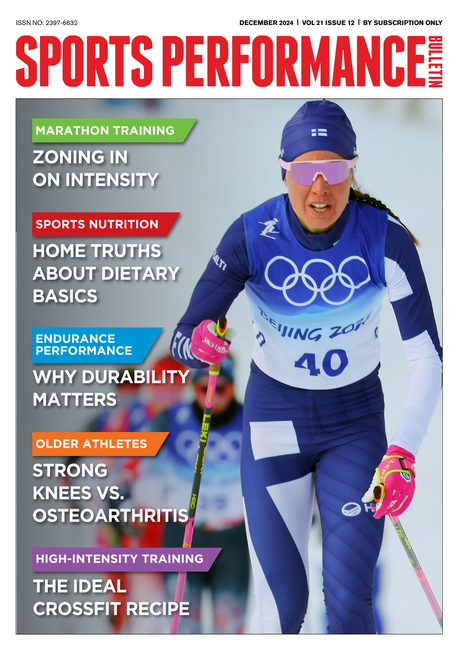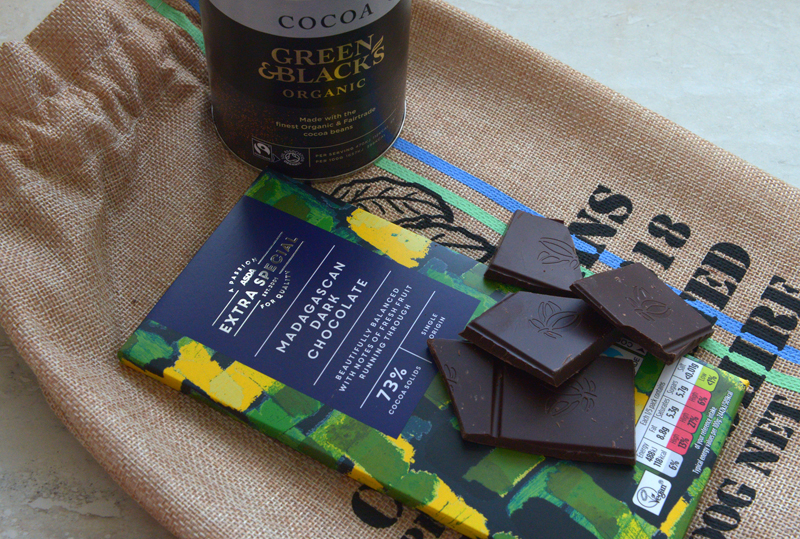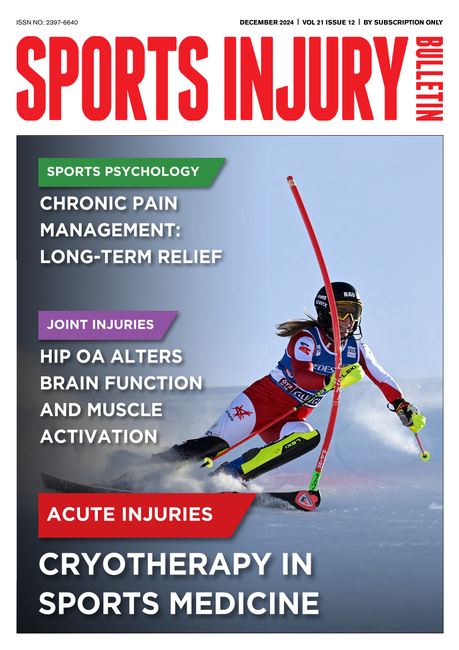You are viewing 1 of your 1 free articles. For unlimited access take a risk-free trial
Tea is the all round performance drink
The caffeine boosts performance and its antioxidant content boosts recovery
Tea is currently admired for its health-promoting properties, but public opinion has not always been so positive. When tea gradually began to replace coffee as Britain's number-one non-alcoholic drink in the early 1700s, health authorities railed against the beverage. The noted German physician Simon Pauli, whose work Commentarius de Abusu Tabaci et Herbae Thee, etc was translated into English in the 1700s, concluded that: 'as Chocolate agrees with Coffee and Tea, ... so all these three exactly agree with each other, in producing Effeminacy and Impotence .... I therefore hope that for the future the Europeans will be wise, and reject Coffee, Chocolate, and Tea, since they are all either equally bad or equally good.
Against such succinct and sound condemnations, it took the opinions of some of the literary giants of the day to ensure that tea would become a popular drink in England. Joseph Addison and Sir Richard Steele, whose daily Spectator was read by almost every literate person in London in the early 1700s (and was frequently read aloud to the illiterate as well), were extremely partial to the new fashion of 'a dish of tea' and advised 'all well-regulated families' to set aside an hour each morning for tea drinking (1). Dr Samuel Johnson, who founded several coffee house circles, eventually developed an enormous appetite for tea, consuming up to 40 cups daily and describing himself as 'a hardened and shameless tea-drinker, who has for many years diluted his meals with only the infusion of this fascinating plant; whose kettle has scarcely time to cool; who with tea amuses the evening, with tea solaces the midnight, and with tea welcomes the morning' (2).
Throughout the 18th century, government officials in Europe were often concerned about the seemingly addictive aspects of tea and coffee consumption. King Gustav III of Sweden (1746-1792), in an attempt to prove that coffee was a poison, ordered a convicted murderer to drink coffee every day until he died. In an attempt to bring some science into his tests, he ordered another murderer to drink tea daily, and he appointed two Swedish doctors to oversee the experiment. Things proceeded unexpectedly, however: the two murderers thrived in prison, the tea drinker passing on eventually at the ripe-old age of 83 and the coffee drinker succumbing a bit later. Well before the demise of either felon, the two doctors went to their graves and King Gustav himself was murdered (3).
This all seems rather silly today, when we are greeted every few weeks or so with new information about the health benefits associated with drinking tea. For example, tea consumption has recently been linked with a reduction in the risk of cardiovascular disease. In an effort to understand why this might be so, researchers at the Boston University School of Medicine asked individuals with proven coronary artery disease to drink either plain water or black tea. Consumption of the black tea was shown to reverse 'endothelial dysfunction', allowing the arteries to dilate more effectively in response to increased blood flow (4). This reversal might help coronary arteries stay more open and thus decrease the risk of heart attack.
Tea turns out to be very rich in a group of antioxidants known as 'catechins', which are also found in heady concentrations in apples and chocolate. In a recent study, catechin consumption (whether from tea or the other main sources) was connected with a decreased risk of ischaemic heart disease(5).
Green tea contains a wealth of catechins, while black and oolong teas contain other antioxidants known as 'theaflavins', which has caused tea drinkers who favour black and oolong to worry that their teas might not be as cardio-protective as the green variety. There is no definitive word on this question, but recent investigations reveal that the theaflavins possess at least the same antioxidant potency as the catechins in green tea(6).
The antioxidants in tea may upgrade the ability of arteries to dilate properly, while reducing oxidant damage to the interior walls of blood vessels. Another finding which might explain the apparently protective effect against heart disease is that high intakes of tea can reduce levels of damaging blood lipids. One recent study correlated tea drinking with a 6 mg/dl drop in total cholesterol and a similar fall in low-density lipoprotein (LDL) cholesterol - the 'bad' cholesterol which is linked with heart disease(7). However, fairly large intakes of tea - about 10 cups per day - were required to produce this effect.
Tea may fight some forms of cancer as well as heart disease
Some apparent cancer-fighting properties of tea have also been detected. One study found that people who drank two or more cups per day had roughly half the risk of developing rectal cancer of non-tea drinkers(8), while a Japanese investigation linked tea drinking with about a 30% decrease in the risk of stomach cancer(9). In the latter study, the amount of tea consumption needed to produce the effect - seven or more cups per day - was again rather large (although not by Dr Johnson's standards!).
What does all of this research mean for the athlete of today? Of course, if you want to reduce your risk of cardiovascular disease and digestive-system cancer, you might explore the potential benefits of tea consumption. But the most direct benefits for athletes arise from tea's amazingly rich antioxidant content. As you may be aware, research into the effects of antioxidants was kick-started many years ago by the discovery of the 'French paradox' - the linkage of low rates of cardiovascular disease with diets which were rather high in saturated fats. The antioxidants in French wine were put forward as the keys to this puzzle, and since then a variety of foods have been tested for their antioxidant power.
Happily for tea drinkers, tea appears to be close to the top of the list in terms of antioxidant activity. One recent study placed it ahead of such other notable antioxidant-rich liquids as instant coffee, cola, red wine, carrot juice, apricot nectar, Turkish coffee, grape molasses and white wine(10). Among solid foods, red grapes, raisins, and dried black plums topped the list. Another piece of research noted that one or two standard cups of tea had as much total free radical scavenging (ie antioxidant) capacity as five normal portions of fruit and/or vegetables or 400mg of vitamin C(11).
And this is where its importance for athletes comes in. Many studies have demonstrated that intense or prolonged exercise generates considerable amounts of 'reactive oxygen species' (oxidants) within the human body. These reactive oxygen species can produce 'oxidative stress', ie damage to fats, proteins, nucleic acids and - ultimately - muscle cells. Such oxidative stress has naturally been linked with fatigue and overtraining, and it has been suggested that the human body's natural oxidant-defense system is not powerful enough to prevent the oxidative stress associated with rugged exercise. Thus, the argument goes, athletes need to accelerate their intakes of foods which are rich in antioxidants. Tea would thus be a sought-after beverage, since it may rank ahead of all others in terms of antioxidant potency. Observers of the athletic scene sometimes wonder if it is more than a coincidence that the best endurance athletes in the world - the Kenyan runners - sip tea throughout the day, just like Dr Johnson.
The idea that increased antioxidant intake really does reduce oxidative stress and thus promote better athletic performance is, in fact, hotly debated, but there is some supporting evidence. In one study, US scientists asked participants to supplement their diets with 1 gram per day of the trusted antioxidant vitamin C and measured oxidative stress after 30 minutes of exertion(12). Exercise-induced oxidative stress was indeed lower after supplementation with vitamin C, but there was no evidence that this effect had any impact on performance.
However, this was not true of an earlier study which compared vitamin E and vitamin C supplementation (400mg per day in both cases) in physically active subjects(13). The subjects engaged in a demanding bout of muscle-damaging box-stepping exercise, which caused maximal muscle strength to fall by 25% and overall strength to plummet by 33% in the follow-up period. However, loss of strength was lowest and recovery speediest in the vitamin C group (compared with those taking vitamin E or placebo). In other words, vitamin C seemed to provide a protective effect against exercise-induced muscle damage.
In another intriguing study, intravenous infusions of an antioxidant called N-acetylcysteine actually improved the performance of ankle-dorsiflexor muscles during fatiguing exercise, suggesting that oxidative stress might play a causal role in the fatigue process itself(14).
So is tea a near-perfect sports drink? If a couple of cups of tea are consumed about an hour before exercise, the caffeine content is likely to enhance performance in high-intensity athletic events. When tea is consumed post-exercise, its rich antioxidant content may well boost recovery and limit oxidative stress to muscles. If you add generous amounts of milk (either soy or cow) and sugar to the tea (as the Kenyans do), it can stimulate protein synthesis and glycogen storage in muscles.
It's true that more research is needed in this area, but it is hard to find fault with the idea that tea is an attractive drink for athletes. In fact, our present state of knowledge suggests that green, oolong, and black varieties of the beverage all suit athletes to a 'T.'
Owen Anderson
References
1. Weinberg, B. A. & Bealer, B. K. (2001). The World of Caffeine. New York: Routledge
2.The Literary Magazine, no. 7, October 15-November 15, 1756
3. Weinberg, B. A. & Bealer, B. K., p. 93
4. Circulation, vol 104(2), pp 151-156, 2001
5. American Journal of Clinical Nutrition, vol 74(2), pp 227-232, 2001
6. Journal of Nutrition, vol 131 (9), pp 2248-2251, 2001
7. Journal of Epidemiology, vol 6(3), pp 128-133, 1996
8. Cancer Epidemiol Biomarkers Prev, vol 3(7), pp 565-570, 1994
9. Cancer Causes Control, vol 9(2), pp 209-216, 1998
10. International Journal of Food Science and Nutrition, vol 52(6), pp 501-508, 2001
11. Toxicology, vol 166, pp 63-69, 2001
12. International Journal of Sports Nutrition, vol 7(1), pp 1-9, 1997
13. European Journal of Applied Physiology, vol 67(5), pp 426-430, 1993
14. Journal of Clinical Investigations, Vol. 94(6), pp. 2468-2474, 1994
Newsletter Sign Up
Testimonials
Dr. Alexandra Fandetti-Robin, Back & Body Chiropractic
Elspeth Cowell MSCh DpodM SRCh HCPC reg
William Hunter, Nuffield Health
Newsletter Sign Up
Coaches Testimonials
Dr. Alexandra Fandetti-Robin, Back & Body Chiropractic
Elspeth Cowell MSCh DpodM SRCh HCPC reg
William Hunter, Nuffield Health
Keep up with latest sports science research and apply it to maximize performance
Today you have the chance to join a group of athletes, and sports coaches/trainers who all have something special in common...
They use the latest research to improve performance for themselves and their clients - both athletes and sports teams - with help from global specialists in the fields of sports science, sports medicine and sports psychology.
They do this by reading Sports Performance Bulletin, an easy-to-digest but serious-minded journal dedicated to high performance sports. SPB offers a wealth of information and insight into the latest research, in an easily-accessible and understood format, along with a wealth of practical recommendations.
*includes 3 coaching manuals
Get Inspired
All the latest techniques and approaches
Sports Performance Bulletin helps dedicated endurance athletes improve their performance. Sense-checking the latest sports science research, and sourcing evidence and case studies to support findings, Sports Performance Bulletin turns proven insights into easily digestible practical advice. Supporting athletes, coaches and professionals who wish to ensure their guidance and programmes are kept right up to date and based on credible science.









